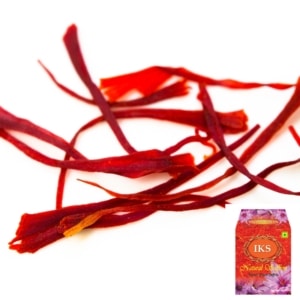Saffron for Diabetes: Exploring its Potential Benefits for Blood Sugar Management
Saffron for Diabetes – Diabetes is a chronic condition that affects millions of people worldwide.
It is characterized by high blood sugar levels due to the body’s inability to produce or effectively use insulin.
While traditional treatment methods such as medication, diet, and exercise play a crucial role in managing diabetes, there is growing interest in alternative remedies.
One such natural ingredient that has gained attention is Saffron (Kesar). In this article, we will explore the potential benefits of saffron for diabetes management.
1. Understanding Diabetes
Diabetes is a metabolic disorder characterized by high blood sugar levels.
It occurs when the body either fails to produce enough insulin or cannot effectively utilize the insulin it produces.
There are two primary types of diabetes: type 1 and type 2.
Type 1 diabetes is an autoimmune condition in which the immune system attacks and destroys the insulin-producing cells in the pancreas.
Type 2 diabetes, on the other hand, is the result of insulin resistance and inadequate insulin production.
2. What is Saffron?
Saffron is a spice derived from the Crocus sativus flower. It is known for its vibrant red color and unique flavor.
Saffron has been used for centuries in traditional medicine and culinary practices across various cultures.
It contains several bioactive compounds, including crocin, safranal, and picrocrocin, which contribute to its potential health benefits.
3. The Nutritional Composition of Saffron
Saffron is rich in several essential nutrients. It contains vitamins such as vitamin C, vitamin A, and vitamin B6.
Additionally, saffron provides minerals like manganese, potassium, and magnesium. While these nutrients are not present in large quantities, they contribute to saffron’s overall nutritional profile.
4. Saffron’s Role in Blood Sugar Regulation
Several studies have suggested that saffron may help regulate blood sugar levels.
The bioactive compounds in saffron have been found to enhance insulin sensitivity, allowing cells to better absorb glucose from the bloodstream.
This effect can help stabilize blood sugar levels and prevent sudden spikes or drops.
5. Anti-inflammatory Properties of Saffron
Chronic inflammation is often associated with diabetes and its complications.
Saffron exhibits potent anti-inflammatory properties, which may help reduce inflammation in the body.
By addressing inflammation, saffron could potentially contribute to better diabetes management and reduce the risk of related conditions.
6. Antioxidant Effects of Saffron
Oxidative stress, caused by an imbalance between antioxidants and harmful free radicals, plays a role in the development of diabetes and its complications.
Saffron is rich in antioxidants that help neutralize free radicals and protect cells from damage.
This antioxidant activity may have a positive impact on diabetes management and overall health.
7. Saffron and Insulin Sensitivity
Insulin resistance, a hallmark of type 2 diabetes, refers to the body’s decreased responsiveness to insulin.
Research suggests that saffron may improve insulin sensitivity, allowing cells to utilize insulin more effectively.
By enhancing insulin sensitivity, saffron could potentially help manage blood sugar levels and reduce the need for higher insulin doses.
8. Saffron as an Adjunct Therapy for Diabetes
While saffron shows promise in blood sugar regulation, it is essential to note that it should not replace conventional diabetes management strategies.
Saffron can be considered as an adjunct therapy to support traditional treatment methods such as medication, diet, and exercise.
It is crucial to consult with a healthcare professional before incorporating saffron into your diabetes management plan.
9. How to Incorporate Saffron into Your Diet
Saffron can be added to various dishes to enhance flavor and reap its potential health benefits.
It is commonly used in rice dishes, soups, stews, and desserts. However, it is essential to use saffron in moderation, as excessive consumption may lead to adverse effects.
Start by adding a pinch of saffron to your favorite recipes and adjust according to taste preferences.
10. Potential Side Effects and Precautions
While saffron is generally safe for consumption, it is essential to be aware of potential side effects and take necessary precautions.
Some individuals may be allergic to saffron, leading to allergic reactions. Additionally, consuming large amounts of saffron may cause gastrointestinal discomfort.
Pregnant women should avoid saffron, as it may stimulate contractions.
Conclusion – Saffron for Diabetes
Saffron shows promise as a natural ingredient that may aid in the management of diabetes.
Its potential benefits include blood sugar regulation, anti-inflammatory properties, antioxidant effects, and improved insulin sensitivity.
However, it is important to note that saffron should not replace conventional diabetes treatment methods.
It can be considered as an adjunct therapy to support traditional approaches. Consult with a healthcare professional before incorporating saffron into your diabetes management plan.















